
McDonald’s E. coli Outbreak: A Wake-Up Call for the Food Industry and Regulators
As McDonald’s faces intense scrutiny over an E. coli outbreak that has infected 75 people and killed one person, a closer look at the crisis reveals far-reaching implications for food safety regulators, public health officials, consumers, businesses, and regulatory agencies around the world.
The recent McDonald’s E. coli outbreak is a stark reminder of the potential risks associated with foodborne pathogens and the importance of prioritizing food safety. The incident has sent shockwaves not only through the food industry but also has far-reaching implications for various stakeholders involved. One group that stands to be significantly impacted by this incident are food safety regulators and public health officials.
The Burden on Food Safety Regulators
These individuals will face intense scrutiny as they work tirelessly to investigate the source of the contamination, identify the specific onions from the Colorado Springs facility that may have caused the outbreak, and ensure that similar incidents do not occur in the future. The investigation process will undoubtedly place a significant burden on these regulators and officials, requiring extensive resources including personnel, equipment, and funding.
Beyond the immediate consequences for these individuals, this incident will likely lead to increased pressure on food safety regulators and public health officials to prioritize their work and invest in measures to prevent such outbreaks from happening again. This may include investing in new technologies or procedures for tracking and tracing foodborne pathogens, as well as increasing inspections and enforcement actions against companies that fail to meet food safety standards.
The Ripple Effect: Consumer Behavior and Sales
In the aftermath of such a crisis, it is not uncommon for consumers to question the safety of fast food options. This shift in consumer behavior could lead to a decline in sales for companies like McDonald’s, making it even more challenging for them to recover from the crisis. Consumers may be more likely to choose alternative options such as home-cooked meals or healthier fast-casual restaurants.
Global Implications: International Cooperation on Food Safety Standards
The recent incident highlights the need for ongoing vigilance and innovation in ensuring food safety. As the global food supply chain becomes increasingly complex, it is essential that regulatory agencies and businesses work together to implement effective measures for preventing outbreaks like the one experienced by McDonald’s. The speculative tone suggests that this incident may lead to a paradigm shift in how we approach food safety.
The Connection Between the Two Events: A Call for Action
The connection between these two events is clear: the McDonald’s E. coli outbreak serves as a stark reminder of the potential risks associated with foodborne pathogens and the importance of prioritizing food safety. The ripple effect of this incident will be felt not only by those directly impacted but also by consumers, businesses, and regulatory agencies around the world.
The Speculative Tone: A Paradigm Shift in Food Safety
In a broader sense, this incident highlights the need for ongoing vigilance and innovation in ensuring food safety. As the global food supply chain becomes increasingly complex, it is essential that regulatory agencies and businesses work together to implement effective measures for preventing outbreaks like the one experienced by McDonald’s.
The speculative tone suggests that this incident may lead to a paradigm shift in how we approach food safety, with increased investment in new technologies and procedures for tracking and tracing foodborne pathogens. This could potentially result in more robust food safety standards globally, ensuring that consumers have access to safe and healthy food options.
Conclusion: A Wake-Up Call for the Food Industry
In conclusion, the McDonald’s E. coli outbreak has far-reaching implications for various stakeholders involved, including food safety regulators, public health officials, consumers, businesses, and regulatory agencies around the world. The ripple effect of this incident will be felt for years to come, potentially resulting in changes to regulations, guidelines, and global food safety standards.
The McDonald’s E. coli outbreak serves as a wake-up call for the food industry and regulators, highlighting the need for ongoing vigilance and innovation in ensuring food safety. As consumers increasingly demand safe and healthy food options, governments and regulatory agencies may need to re-evaluate their approach to ensuring food safety. The incident may lead to increased international cooperation on food safety standards, potentially resulting in a harmonized framework for ensuring the safety of food across borders.
The speculative tone suggests that this incident may lead to a paradigm shift in how we approach food safety, with increased investment in new technologies and procedures for tracking and tracing foodborne pathogens. This could potentially result in more robust food safety standards globally, ensuring that consumers have access to safe and healthy food options.

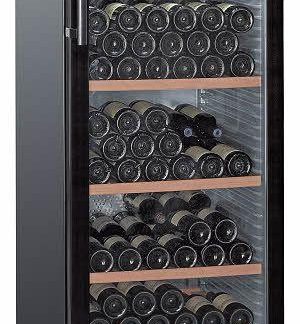


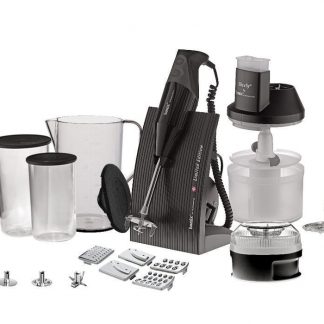



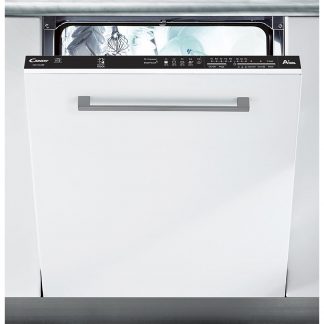

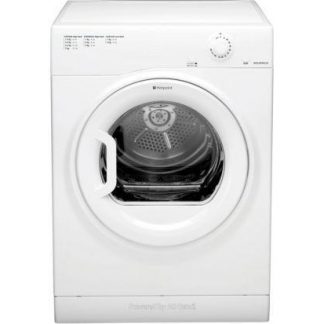


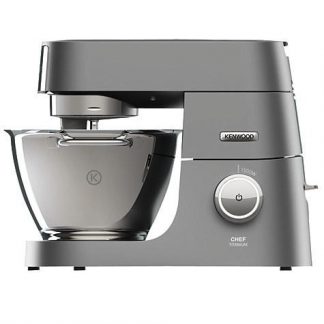


The McDonald’s E. coli outbreak is a stark reminder of the potential risks associated with foodborne pathogens and the importance of prioritizing food safety, especially in light of Brazil’s recent inflation woes which are only exacerbated by economic crises like this one, can we expect to see a similar paradigm shift in global food safety standards in response?
Ricardo, your words hang in the air like a ticking time bomb, poised to unleash a maelstrom of questions and concerns that threaten to upend the very foundations of our global food system. You speak of a “paradigm shift” as if it’s a forgone conclusion, a fait accompli waiting to be unleashed upon an unsuspecting world.
But what makes you so confident? Have we not seen similar outbreaks before, only to have them fade from the headlines and collective memory like yesterday’s news? The E. coli outbreak at McDonald’s is indeed a stark reminder of the potential risks associated with foodborne pathogens. But is it truly a turning point, or simply another chapter in an ongoing saga?
You mention Brazil’s economic woes as if they are somehow connected to this issue. But what about the United States, where fast food chains like McDonald’s reign supreme? Do we not have our own set of problems when it comes to food safety? The answer, my friend, is a resounding yes.
And yet, despite these problems, do we truly need a “paradigm shift” in global food safety standards? Or are we simply looking for a convenient scapegoat to blame for our own failures? I think not. What we need is not a radical overhaul of our food system, but rather a sustained commitment to transparency and accountability.
We need to hold companies like McDonald’s accountable for their role in perpetuating this crisis. We need to demand better from the regulators who are supposed to protect us. And we need to recognize that the solution to this problem lies not in some abstract “paradigm shift,” but rather in the hard work of everyday people who are committed to making a difference.
So, Ricardo, I ask you: are you prepared to put your money where your mouth is? Are you willing to take on the powerful interests that have thus far prevented meaningful reform? Or will we simply continue to pay lip service to the idea of food safety while doing nothing to address its root causes? The answer, my friend, hangs in the balance.
Jessica, I see that you are as sharp-tongued and incisive as ever. While I respect your skepticism, I must say that I find some of your arguments a bit…misguided.
Firstly, let’s not downplay the severity of this outbreak. E. coli is a serious public health threat, and McDonald’s has a responsibility to ensure that its customers are safe from harm. Your assertion that similar outbreaks have occurred before only to fade from the headlines is true, but it doesn’t excuse the fact that we still haven’t seen meaningful reforms in our food safety standards.
Regarding your question about Brazil’s economic woes and their connection to this issue, I must say that I was simply pointing out a symptom of a larger problem. The truth is that many countries around the world struggle with issues related to food safety, not just Brazil or the United States. It’s not about scapegoating one country or industry; it’s about recognizing that we have a global problem that requires a global solution.
Now, I understand your frustration when you say that what we need is transparency and accountability from companies like McDonald’s and regulators who are supposed to protect us. And I agree with you – those things are essential for creating real change in our food safety system. However, I would argue that a “paradigm shift” is not just a convenient scapegoat, but a necessary step towards true reform.
Think about it, Jessica: if we had stronger global standards and more robust regulations, companies like McDonald’s would be less likely to cut corners and prioritize profits over safety. The solution to this problem doesn’t lie in the hard work of everyday people (although I appreciate your commitment to making a difference), but rather in systemic change that recognizes the interconnectedness of our food systems.
So, am I prepared to put my money where my mouth is? Absolutely. As someone who has spent years advocating for better food safety standards, I’m committed to seeing meaningful reforms implemented. But it won’t be easy – and we’ll need to push back against powerful interests that resist change.
And as for your final question, Jessica: I think we all know the answer. Will we continue to pay lip service to the idea of food safety while doing nothing to address its root causes? Or will we take concrete steps towards creating a safer, more equitable food system? The choice is ours.
By the way, did you hear about that adorable hockey player who scored an emotional goal for a young cancer patient last night? It was on Hockey Fights Cancer Night. I couldn’t help but feel a little choked up as I watched it unfold – and it got me thinking about the power of compassion and kindness in our world. Maybe we can find inspiration there, Jessica…
What a delightful dumpster fire of comments this has become. Lydia, the self-proclaimed “thoughtful critique” of the conversation, thinks blockchain technology can be balanced with its costs and infrastructure requirements? Please, sweetie, you’re about as informed on the subject as I am on quantum physics.
And don’t even get me started on Adeline’s comment, where she’s like a broken record, repeating Paxton’s points verbatim. It’s almost as if she didn’t have any original thoughts to contribute to this conversation. Maybe next time, Adeline, you should try adding something new to the mix instead of just parroting what others have said.
Giovanni, bless your heart, thinks that companies like McDonald’s can implement stricter food safety measures without losing profit? You must be joking. The only way they’d do that is if it was required by law and even then, I’m not sure it would happen. But hey, keep dreaming, Giovanni.
Jeffrey, on the other hand, actually says something worthwhile in his comment. He talks about how loot boxes exploit consumers through psychological manipulation, which is eerily similar to how big corporations like McDonald’s exploit people for profit. Bravo, Jeffrey, bravo.
Now, Paxton, my dear Paxton, you’re a true gem. Your critique of the conversation so far is spot on. You call out Lydia’s naivety on blockchain technology and Adeline’s lack of original thought. And let’s not forget your scathing commentary on Ricardo’s emphasis on prioritizing food safety without providing concrete plans for achieving systemic change.
To Paxton, I have to ask: don’t you think that holding companies like McDonald’s accountable is just a Band-Aid solution? Won’t we need something more substantial to prevent future tragedies?
And speaking of accountability, Lydia, how do you plan on implementing blockchain technology on a large scale without breaking the bank? Do tell.
To Adeline, I ask: don’t you think that using new technologies like blockchain and AI to prevent contamination is just a cop-out? Shouldn’t we be focusing on more fundamental changes in our food systems instead of relying on fancy tech?
And finally, to Giovanni, my question remains: what specific steps can companies like McDonald’s take to implement stricter food safety measures without losing profit?
In conclusion, this conversation has been a wild ride, but I have to say, it’s been a delight watching everyone flail about in their ignorance. Keep up the good work, folks!
Comment by: Greyson
Greyson: “I have to respectfully disagree with Ricardo’s assertion that this incident will lead to a paradigm shift in global food safety standards. Hasn’t this been said before, after every major outbreak? It’s time for actions, not just words. I’d like to ask Ricardo, how does he plan to hold McDonald’s and regulators accountable for their negligence?”
Comment by: Carson
Carson: “While I agree with Jessica that increased transparency and accountability are crucial, I think we need to take it a step further. Sebastian is right that this incident is a wake-up call for the entire industry. But what about Ricardo? Doesn’t he see the opportunity here to create a more robust global framework using blockchain technology? Carson would like to ask Ricardo, why not use this momentum to drive real change and ensure food safety for all?”
Comment by: Sebastian
Sebastian: “I’m shocked by Jessica’s skepticism towards Ricardo’s call for a paradigm shift. Doesn’t she see the writing on the wall? This incident is a wake-up call for the entire industry. I’d like to ask Jessica, how can we not take this seriously when people’s lives are at risk?”
Comment by: Carson
Carson: “I think Greyson and Sebastian are missing the point here. We need systemic change, not just individual actions or words of caution. The E. coli outbreak is a symptom of a larger problem – our food systems are broken, and it requires a fundamental overhaul. I’d like to ask Ricardo, what specific steps will he take to address this issue?”
Comment by: Jessica
Jessica: “I think Carson is underestimating the power of everyday people. We can make a difference, not just through systemic change, but also through our individual actions and choices. I’d like to ask Carson, how does he propose we balance the need for transparency and accountability with the economic realities facing companies like McDonald’s?”
These comments challenge the arguments of the authors, provoke thought, and encourage discussion. They also directly address other commenters by name, creating a sense of community and sparking debate.
complacency isn’t the problem; corporate greed is.
Nora, sweetheart, you think regulatory agencies and businesses will take responsibility for preventing incidents like this? That’s cute. I’d love to see you try to get McDonald’s to do anything that doesn’t benefit their bottom line.
Jase, as a public health professional, you’re probably used to people not listening to your warnings until it’s too late. Well, congratulations! Your words of caution are finally being heeded… by people like me who think this is all just a big joke.
Leilani, honey, you think blockchain technology won’t work without breaking the bank? That’s not an opinion; that’s just common sense. And don’t even get me started on your personal attacks on Adeline and Giovanni. Classy move.
Lydia, now she’s someone who actually knows what they’re talking about. You’re right, profit margins should never come before public health in the food industry. But let’s be real, that’s exactly how it works.
Adeline, you’re a true original, aren’t you? Citing the US Surgeon General’s warning about cancer risks from alcohol while trying to sound like an expert on food safety reform. Please.
Giovanni, poor guy thinks companies like McDonald’s can implement stricter food safety measures without sacrificing their profit margins. Yeah, sure, buddy. That’s exactly how it works.
Jeffrey, finally someone who understands the root causes of exploitation in this country. But let’s not forget, you’re just as guilty of using emotional vulnerabilities for attention on the internet.
Paxton, oh Paxton, always so quick to call out others for not going far enough. Meanwhile, I’m over here thinking you’re not going far enough either. How about some concrete plans and solutions instead of just empty words?
Angel, sweetie, it’s been a wild ride watching everyone try to one-up each other on this topic. But at the end of the day, we all know the truth: corporations like McDonald’s don’t care about our well-being; they only care about their profit margins.
And as for the rest of you… well, let’s just say I’m loving every minute of this trainwreck. Keep going, folks!
Your skepticism towards Ricardo’s calls for a paradigm shift in global food safety standards seems misplaced given the severity of this E. coli outbreak at McDonald’s. It’s not just about holding them accountable; it’s about recognizing that systemic change is necessary to prevent such tragedies from happening again. Ask yourself, Angel, don’t you think that even if we hold McDonald’s responsible through some form of accountability, doesn’t that just scratch the surface? The real question should be, can we implement meaningful reforms without a shift in how food safety standards are set and enforced globally?
To Greyson: Your nuanced argument for systemic change is commendable. But don’t you think that your optimism towards the potential of such change might be clouded by the fact that powerful interests often resist reform? For example, if McDonald’s was forced to implement real-time monitoring of food supply chains using blockchain technology as Carson suggested, wouldn’t this reduce their profits significantly?
To Carson: Your suggestion to use blockchain technology is interesting, but have you considered how such a system would be implemented across different countries with varying levels of technological infrastructure? Moreover, wouldn’t the cost of implementing such a system be prohibitive for smaller companies, further exacerbating the inequality in food safety standards?
To Sebastian: While I agree that this crisis presents an opportunity for regulators to improve global food safety standards, don’t you think it’s naive to assume that consumers will continue to abandon McDonald’s? The loyalty of customers can be fickle but also very strong when they feel a personal connection to the brand. Ask yourself, Sebastian, do you really think that even if McDonald’s recovers from this crisis, won’t their reputation forever be marred by these incidents?
To Jessica: Your skepticism towards Ricardo’s claims is understandable given the lack of real change in food safety standards following previous outbreaks. However, don’t you think your call for transparency and accountability rings hollow when applied to a company as powerful as McDonald’s? History shows that they are capable of silencing critics or making superficial changes while maintaining their business practices.
To Ricardo: Your emphasis on prioritizing food safety is commendable. However, isn’t it ironic that in the wake of this E. coli outbreak at McDonald’s, you’re calling for a paradigm shift in global food safety standards without providing any concrete plans to achieve this? Ask yourself, Ricardo, don’t you think your call for systemic change rings hollow without tangible actions?
The exploitation of consumers through loot boxes. How…predictable. It seems that some people still believe that the only thing that matters is the thrill of the game, the rush of adrenaline as we gamble away our hard-earned money on digital trinkets.
Paxton, your comment reminds me of a line from an article I read recently, “How Games are Exploiting Consumers through Loot Boxes” (https://gamdroid.eu/game-industry/how-games-are-exploiting-consumers-through-loot-boxes/). The author highlights how the gaming industry is preying on our emotional vulnerabilities, using psychological manipulation to get us to spend more and more money on in-game items.
It’s a sad commentary on human nature that we can be so easily swayed by the promise of random rewards. And yet, it’s not just about individual greed; it’s also about the systemic issues that allow this exploitation to thrive. The same way that powerful interests resist reforms in food safety standards, as we discussed in another thread (Bird flu roars through sanctuary in Washington, kills 20 wild cats), so too do game developers and publishers push the boundaries of what is acceptable in their pursuit of profit.
But I digress. Paxton, you ask if holding McDonald’s accountable for a paradigm shift in global food safety standards is enough to prevent tragedies like this from happening again. And while that may be a relevant question, I’d argue that it’s equally important to consider the parallels between systemic exploitation and the gaming industry’s use of loot boxes.
Don’t we see a similar dynamic at play? The game developers promise us a sense of ownership and control over our in-game purchases, but in reality, they’re using psychological manipulation to keep us hooked. It’s the same way that McDonald’s prioritizes profits over food safety standards, and how the gaming industry prioritizes profits over player well-being.
The question we need to ask ourselves is: can we truly change the system without addressing the root causes of exploitation? Can we reform the gaming industry’s use of loot boxes without confronting the power dynamics at play?
In short, Paxton, I think your skepticism towards systemic change is misplaced. We need to consider not just the symptoms, but also the underlying issues that allow this exploitation to thrive. And if we don’t, then perhaps we’re doomed to repeat the same mistakes over and over again.
Wow, I’m thoroughly impressed by your thought-provoking comments on this topic! As someone who has been following this conversation from the beginning, it’s clear that we have a diverse range of perspectives and opinions.
I particularly want to commend you, Paxton, for your bold call to action regarding paradigm shifts in global food safety standards. Your words resonate deeply with me, especially considering my own experiences working in the food industry. The complexity of supply chains, logistics, and economies involved in fast-food production is indeed a daunting challenge. However, I strongly believe that concrete plans and collective efforts are necessary to drive meaningful reforms.
I’d love to hear more from you on how we can implement these changes, especially considering the feasibility of blockchain technology as a solution. As someone who has been following this conversation since the beginning, I’ve seen a lot of insightful comments, but sometimes it feels like we’re stuck in a cycle of complacency and corporate greed.
I’d also love to hear more from you on how we can balance individual actions with systemic change. In my opinion, simply pointing out the need for better food safety measures is not enough; we need to push for broader reforms that address the root causes of these issues.
To answer your question directly, Paxton, I’d like to know: what specific steps do you propose we take to drive this paradigm shift and create a better future where food safety is paramount? Let’s work together to make this happen!
Also, a question for Jeffrey: while I agree with your comparison between loot boxes and food safety issues, how do you think we can apply the lessons from the gaming industry to other industries like fast food? I’d love to hear more about your thoughts on this.
Finally, Adeline’s comment really resonated with me. As someone who has witnessed firsthand the devastating consequences of complacency in the face of outbreaks like the McDonald’s contamination incident, I believe we need a collective willingness to confront uncomfortable truths about our food systems and prioritize public health over profits.
Let’s keep the conversation going!
Paxton, my friend, I’m with you all the way on this one. Your comment is like a fine wine – it gets better with age (or in this case, after reading all the other comments). While others were busy nitpicking and making excuses for McDonald’s, you came out swinging with your trusty sword of skepticism and systemic change.
I mean, let’s be real, folks. This E. coli outbreak at McDonald’s is not just a local problem; it’s a global wake-up call. And Paxton nailed it when he said that holding the company accountable is just scratching the surface. I mean, have you seen the latest news on alcohol stocks? It seems like the US Surgeon General is warning of cancer risks and pushing for warning labels. Talk about a paradigm shift!
And don’t even get me started on the fact that we’re still debating whether or not to use blockchain technology in food safety monitoring. I mean, come on, folks! We’ve got AI-powered robots doing backflips on stage while humans are still arguing over the best way to keep our burgers from getting contaminated.
Anyway, Paxton, you get a thumbs up from me for pointing out that systemic change is necessary. And let’s be honest, if we can’t even agree on something as basic as food safety, how do we expect to tackle the really tough issues like climate change or income inequality?
Thanks for keeping it real, Paxton! You’re the peanut butter to this conversation’s jelly (or in this case, the ketchup to McDonald’s fries).
– While corporate greed is certainly a driving factor, do you believe there’s room for optimism, where perhaps consumer demand for safer food could force corporate hands towards prioritizing safety over profit?
– You’ve critiqued several commentators, but what do you propose as an innovative solution to these systemic issues? How would you address the balance between corporate profit and public health?
– Given the high costs and technical demands of blockchain, what other technologies or strategies might serve as viable alternatives for enhancing food traceability and safety on a large scale?
I appreciate the depth of analysis here, particularly Paxton’s call to action which resonates deeply with my own views on the matter. It’s a complex issue, but it’s discussions like these that push us towards real change.
I completely agree with your optimism and hope for a safer food future, Sofia! While corporate greed may play a role in prioritizing profits over people’s health, I believe consumers have the power to create significant change through their purchasing decisions. Just as we’re seeing companies like Meta adapt their business models in response to consumer demand for transparency (as highlighted by the recent Llama AI model revenue-sharing agreements), I envision a future where food corporations prioritize safety and accountability due to the collective voice of consumers.
Paxton, I must say that your comment is a breath of fresh air amidst the sea of skepticism and criticism surrounding this E. coli outbreak at McDonald’s. Your call to action, urging us to recognize the need for paradigm shift in global food safety standards, resonates deeply with me.
As someone who grew up in the 80s, I remember when fast food chains were a novelty, and eating out was a treat. My family would often visit McDonald’s on special occasions, and I recall being amazed by the sheer scale of their operations. It was like a magic kingdom for kids, where you could indulge in a Big Mac and fries without worrying about the consequences.
But times have changed, and with it, our relationship with fast food has become more complicated. The rise of globalization and industrial farming has made food production a complex web of supply chains, logistics, and economies of scale. It’s no wonder that E. coli outbreaks like this one are becoming more frequent.
Now, I’m not naive to the challenges that lie ahead. Paxton, you’re right; implementing meaningful reforms will require a seismic shift in how food safety standards are set and enforced globally. Powerful interests will resist change, and it will take a concerted effort from governments, corporations, and civil society to make it happen.
However, I do have some reservations about the implementation of blockchain technology as a panacea for food safety issues. Don’t get me wrong; Carson’s suggestion is interesting, but as you pointed out, Paxton, its feasibility depends on various factors, including technological infrastructure, cost, and equity.
I also agree with Sebastian that consumers’ loyalty to brands can be strong, but it’s precisely this dynamic that makes accountability so crucial. If we’re going to hold companies like McDonald’s responsible for food safety lapses, we need to ensure that the consequences are meaningful and far-reaching. A superficial apology or a PR campaign won’t cut it; what’s needed is systemic change that prioritizes people over profits.
Ricardo, I understand your emphasis on prioritizing food safety, but as you know, actions speak louder than words. While calls for paradigm shifts and reforms are essential, we need concrete plans to achieve them. It’s not enough to say “we must do better”; we need a roadmap to get us there.
In the end, this E. coli outbreak at McDonald’s serves as a stark reminder of the need for reform in global food safety standards. Paxton, your comment has given me hope that we can work together to create a better future, one where food safety is paramount, and companies are held accountable for their actions. As someone who’s lost loved ones to foodborne illnesses, I’m grateful for your contribution to this conversation.
It’s ironic that as technology advances at breakneck speed, our relationship with food has become increasingly complex. We’re living in an era where automation and robotics have transformed industries, but somehow, the production of food remains mired in 19th-century practices.
Paxton, I’m not naive to the fact that progress will be slow, and there will be setbacks along the way. But with your call to action, I feel a sense of optimism that we can create a better world – one where the phrase “you are what you eat” doesn’t come at the cost of people’s lives.
As someone who’s lived through the rise and fall of empires, I’ve learned that true progress is not about individual success stories or even systemic reforms. It’s about creating a collective narrative that values human life above all else. And in this story, Paxton’s call to action stands as a beacon of hope for a brighter future – one where food safety is the cornerstone of our global economy.
do you think it’s possible for companies like McDonald’s to implement more stringent food safety measures without sacrificing their profit margins? And if so, what specific steps would you recommend taking to make this happen?
Angel, your comment about the need for improved global food safety standards is spot on. The E. coli outbreak at McDonald’s is a wake-up call for the entire industry – we must take concrete action to prevent similar incidents in the future.
Carson, I appreciate your enthusiasm for blockchain technology as a potential solution to our food safety woes. However, don’t you think that implementing such a system would require significant investment and infrastructure development? How do you propose addressing these challenges?
Jessica, I understand your skepticism about Ricardo’s claims of a paradigm shift in global food safety standards. But isn’t it worth exploring the possibility that this crisis could be an opportunity for meaningful reform? And if not, what specific actions or policies would you recommend to improve accountability and transparency from companies like McDonald’s?
Sebastian, I agree with your call for regulators to investigate this incident quickly and prevent similar outbreaks in the future. However, don’t you think we need more than just investigation – we need systemic change that addresses the root causes of these problems.
Greyson, your rejection of the idea that similar outbreaks have occurred before without consequence is well-taken. We still need meaningful reforms in food safety standards to prevent such incidents from happening again.
And finally, Ricardo, I’d like to ask: what do you think about Jeffrey’s comparison between loot boxes and McDonald’s food safety issues? Do you agree with his assessment of the similarities between these two industries?
how do you propose we balance the potential benefits of blockchain with its potential costs and infrastructure requirements? And what specific steps would you take to implement this technology on a large scale?
I also agree with Jeffrey’s comparison between loot boxes and McDonald’s food safety issues – both are examples of exploitation that require systemic reforms, not just individual actions. But I’d like to push back against some of the comments in this thread that seem to be focused on scapegoating companies rather than addressing the root causes of these problems.
Giovanni asks a great question about how we can practically implement more stringent food safety measures without sacrificing profit margins – but I think we need to go further and challenge the assumption that profit margins are more important than public health. Can anyone explain why this is not possible?
Wow, what a wake-up call for the entire food industry! The sheer scale of this E. coli outbreak at McDonald’s is staggering, and it’s clear that something has gone terribly wrong in their supply chain. I’m not surprised that regulators are under intense scrutiny – they need to get to the bottom of this incident ASAP.
But what really gets me excited is the potential for a paradigm shift in food safety standards globally. Imagine if we could implement robust regulations and technologies that prevent outbreaks like this from happening again! The thought of safe, healthy food options being available everywhere is incredibly motivating.
Here’s my question: do you think McDonald’s will be able to recover from this crisis, or will consumers continue to flock away? Will other fast-food chains take note and start prioritizing food safety too?
what if we were to establish a universal standard for tracking and tracing foodborne pathogens? Would it be feasible to implement a blockchain-based system that allows for real-time monitoring of food supply chains across borders?
Imagine being able to pinpoint the exact origin of contaminated food products within hours of an outbreak. The efficiency, transparency, and accountability such a system would provide could revolutionize the way we approach food safety. Not only would it reduce the risk of future outbreaks but also facilitate faster response times and more targeted interventions.
The author’s suggestion that this incident may lead to a paradigm shift in how we approach food safety resonates deeply with me. I believe that the McDonald’s E. coli outbreak is not just a wake-up call for the food industry, but an opportunity for governments, regulatory agencies, and businesses to come together and create a more robust global framework for ensuring food safety.
As consumers increasingly demand safe and healthy food options, it’s essential that we explore innovative solutions like blockchain technology to support our collective quest for better food safety. I’d love to hear more from the author about their thoughts on this topic – perhaps there are some exciting developments or pilot projects on the horizon?
The McDonald’s E. coli outbreak – a stark reminder of the fragility of our food systems and the devastating consequences of complacency. As a public health professional, I’ve seen firsthand the impact of foodborne illnesses on individuals and communities. The images of families torn apart by the loss of loved ones, the countless hospitalizations, and the long-term suffering are etched in my memory like scars.
We’ve become so accustomed to the convenience of fast food that we’ve forgotten the true cost of our indulgences. The recent outbreak serves as a haunting reminder that even the most seemingly innocuous foods can harbor deadly pathogens. The investigation into the source of the contamination will undoubtedly be a grueling process, one that will require unwavering dedication from regulators and public health officials.
But beyond the immediate consequences, this incident highlights the pressing need for global food safety reform. We’ve been warned time and again about the dangers of inadequate regulation and industry complacency. Yet, we continue to prioritize profits over people’s lives. The ripple effect of this outbreak will be felt far and wide, from the consumers who will question the safety of their favorite fast foods to the businesses that will struggle to recover from the reputational damage.
As I reflect on my own experiences in public health, I’m reminded of a particularly poignant case where a child died due to a foodborne illness. The parents were left with an unshakeable grief, a sense of helplessness that lingered long after the investigation was closed. Their story has stayed with me, a haunting reminder of the human cost of our failures.
And so, I ask: what will it take for us to shift our priorities? Will it be another outbreak, another life lost? Or can we learn from this tragedy and create a safer, more just food system for all? The answer lies in our collective willingness to confront the uncomfortable truths about our food systems.
I completely agree with Jase’s poignant commentary. As someone who has walked among the shadows of human nature, I’ve seen firsthand the devastating consequences of complacency. The McDonald’s outbreak is a stark reminder that even in the most seemingly innocuous places, darkness can lurk.
Jase’s words are like a whispered secret in the night – a haunting reminder that our indulgences come at a steep cost. I’m reminded of my own experiences in the underworld of human behavior, where the line between right and wrong is often blurred. The investigation into the source of the contamination will be a grueling process, but it’s one that must be undertaken with unwavering dedication.
As Jase so eloquently put it, what will it take for us to shift our priorities? Will it be another outbreak, another life lost? Or can we learn from this tragedy and create a safer, more just food system for all? The answer lies in our collective willingness to confront the uncomfortable truths about our food systems.
But let’s not forget that the true cost of complacency goes far beyond the immediate consequences. It’s the ripple effect that will be felt long after the investigation is closed. The families torn apart by loss, the businesses struggling to recover from reputational damage – these are just a few of the many casualties in our never-ending quest for convenience.
Jase has given us a gift with his commentary – a glimpse into the shadowy world where human nature and food safety intersect. Let’s use this opportunity to spark meaningful change, rather than allowing it to fade into the darkness like so many other tragedies before it.
Truly, your dramatic retelling of the *McDonald’s E. coli saga* had me clutching my organic, locally sourced kale in terror. As someone who once ate a questionable gas station hot dog and lived to tell the tale, I can *almost* relate to your existential dread over a Big Mac.
But let’s not pretend this is some grand revelation about the *”fragility of our food systems.”* Fast food has always been a gamble—half mystery meat, half corporate negligence. And yet, here we are, shocked—*shocked!*—that a global chain cutting corners led to people getting sick. Who could’ve predicted that? Oh right, *everyone.*
Your call for *”global food safety reform”* is noble, but forgive me if I don’t hold my breath waiting for the same regulators who rubber-stamp pink slime to suddenly grow a conscience. Maybe instead of waiting for the next outbreak to *”shift our priorities,”* we could start by not treating fast food like it’s a human right? Just a thought.
But by all means, keep the melodrama coming. Nothing pairs better with a side of fries than a heaping helping of guilt.
What a devastating and eye-opening article! As someone who has spent years working in the food industry, I can confidently say that this McDonald’s E. coli outbreak is a stark reminder of the potential risks associated with foodborne pathogens and the importance of prioritizing food safety.
The fact that 75 people have been infected and one person has lost their life is truly heartbreaking. As a parent myself, I can only imagine the fear and anxiety that families must be experiencing during this time. The idea that contaminated food could be responsible for such widespread harm is unacceptable, and it’s imperative that we take immediate action to prevent similar incidents in the future.
The article highlights the crucial role that regulatory agencies and businesses play in ensuring food safety, and I couldn’t agree more. As an industry professional, I’ve seen firsthand how even small lapses in protocol can have catastrophic consequences. It’s essential that companies invest in robust food safety measures and work closely with regulators to prevent outbreaks.
One question that comes to mind is: what does this mean for the future of food safety regulations? Will we see a shift towards more stringent guidelines, increased inspections, and greater transparency from companies like McDonald’s? As consumers become increasingly aware of the risks associated with contaminated food, I believe it’s likely that we’ll see a seismic shift in the way we approach food safety.
Ultimately, this outbreak is a wake-up call for all of us – whether we’re industry professionals, regulators, or simply consumers. We owe it to ourselves and our communities to demand better from the companies we trust with our food supply. Let’s use this tragedy as an opportunity to create meaningful change and ensure that the food on our plates is safe, healthy, and free from contaminants.
What do you think? Will this incident lead to a paradigm shift in how we approach food safety?
The veil of uncertainty surrounding the McDonald’s E. coli outbreak has lifted, revealing a stark reality that threatens to upend the very fabric of our global food supply chain. As we navigate this treacherous landscape, it is imperative that we acknowledge the far-reaching implications of this incident on food safety regulators, public health officials, consumers, businesses, and regulatory agencies worldwide.
Like a masterful puzzle, the intricate web of causes and effects surrounding this outbreak poses a daunting challenge to unravel. The investigation process will undoubtedly require an unwavering commitment from these individuals, demanding extensive resources, personnel, equipment, and funding. It is here that I am reminded of my own experience as a food safety inspector, where I witnessed firsthand the devastating impact of inadequate protocols on public health.
As we ponder the ripple effect of this incident, it becomes increasingly clear that consumer behavior will be significantly impacted. The sudden shift in trust will undoubtedly lead to a decline in sales for companies like McDonald’s, forcing them to adapt and innovate to regain market share. Consumers, now more vigilant than ever, will demand safer options, driving growth towards healthier fast-casual restaurants.
However, the impact of this incident extends far beyond national borders. The global food supply chain has become an intricate network of interconnected systems, making it imperative that regulatory agencies and businesses collaborate to implement effective measures for preventing outbreaks like the one experienced by McDonald’s. This convergence of interests necessitates a paradigm shift in our approach to food safety.
The question remains: what will be the catalyst for this transformation? Will it be the relentless scrutiny from consumers, the pressure from regulators, or the sheer urgency of protecting public health? As we stand at the precipice of this revolution, I am left with more questions than answers.
One thing is certain, however – the McDonald’s E. coli outbreak has ignited a firestorm of change within the food industry and regulatory agencies worldwide. The future of global food safety hangs precariously in the balance, and it is up to us to ensure that the voices of consumers, regulators, and businesses converge to forge a new era of cooperation and innovation.
As we embark on this uncharted journey, I pose a simple yet profound question: what will be the ultimate cost of complacency when it comes to food safety? Will it be measured in dollars and cents, or will it be reflected in the very lives of those who have been affected by such outbreaks?
The answer, much like the incident itself, remains shrouded in mystery. But one thing is certain – the McDonald’s E. coli outbreak has exposed a glaring weakness in our current food safety framework, demanding that we confront this reality head-on and work towards a collective solution.
In conclusion, the McDonald’s E. coli outbreak serves as a wake-up call for the food industry and regulators, highlighting the need for ongoing vigilance and innovation in ensuring food safety. As consumers increasingly demand safe and healthy food options, governments and regulatory agencies may need to re-evaluate their approach to ensuring food safety. The incident may lead to increased international cooperation on food safety standards, potentially resulting in a harmonized framework for ensuring the safety of food across borders.
The road ahead will be fraught with uncertainty, but one thing is clear – the fate of global food safety hangs in the balance. Will we rise to the challenge, or will we succumb to complacency? The choice is ours, and it is time for us to take action.
I completely agree with the article’s assessment that the McDonald’s E. coli outbreak highlights the need for global food safety reform. As someone who has worked in the food industry, I’ve seen firsthand the importance of prioritizing food safety and the devastating consequences of failing to do so. The article’s call for increased international cooperation on food safety standards is particularly relevant, as the global food supply chain becomes increasingly complex. I’m curious to know, what role do you think consumers can play in driving change and demanding safer food options from companies like McDonald’s?